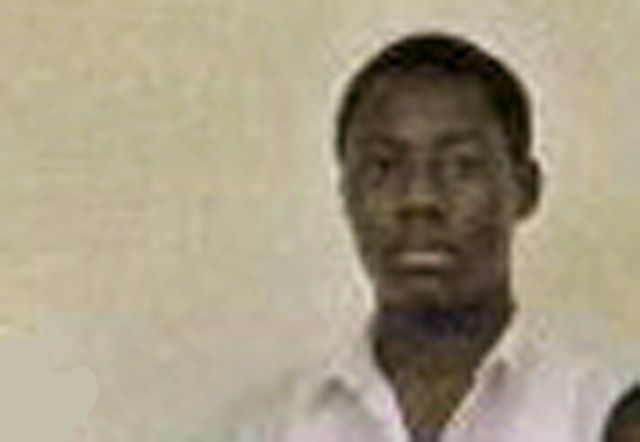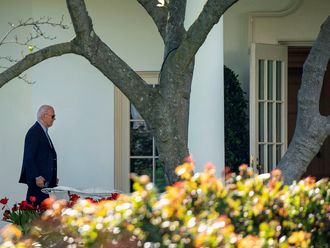Detroilt: A 23-year-old Nigerian man who claimed to have ties to Al Qaida was charged Saturday with trying to destroy a Detroit-bound airliner on Christmas Day, as authorities learned his father had warned US officials of concerns about his son's religious beliefs.
The suspect claimed to have received training and instructions from Al Qaida operatives in Yemen, a law enforcement official said on the condition of anonymity because the investigation is ongoing.
US Rep. Jane Harman, chairman of a House Homeland Security subcommittee, said there were "strong suggestions of a Yemen-al Qaida connection and an intent to blow up the plane over US airspace." However, several officials said they have yet to see independent confirmation.
Some airline passengers traveling Saturday felt the consequences of the frightening attack. They were told that new US regulations prevented them from leaving their seats beginning an hour before landing.
The Justice Department charged that Umar Farouk Abdulmutallab willfully attempted to destroy or wreck an aircraft" and that he placed a destructive device in the plane.
US District Judge Paul Borman read Abdulmutallab the charges in a conference room at the University of Michigan Medical Center in Ann Arbor, Michigan where he is being treated for burns.
An affidavit said he had a device containing a high explosive attached to his body. The affidavit said that as Northwest Flight 253 descended toward Detroit Metropolitan Airport, Abdulmutallab set off the device - sparking a fire instead of an explosion.
According to the affidavit filed in US District Court in Detroit, a preliminary analysis of the device showed it contained PETN, also known as pentaerythritol.
This was the same material convicted shoe bomber Richard Reid used when he tried to destroy a trans-Atlantic flight in 2001 with explosives hidden in his shoes.
PETN is often used in military explosives and found inside blasting caps. But terrorists like it because it's small and powerful.
The suspect smiled when he was wheeled into the hospital conference room. He had a bandage on his left thumb and right wrist, and part of the skin on the thumb was burned off.
He was wearing a light green hospital robe and blue hospital socks. The judge sat at the far end of a 10-foot (3-metre) table, the suspect at the other end.
Judge Borman asked the defendant if he was pronouncing his name correctly.
Abdulmutallab responded, in English. "Yes, that's fine." The judge asked Abdulmutallab if he understood the charges against him. He responded in English: "Yes, I do."
The judge said the suspect would be assigned a public defender and set a detention hearing for Jan. 8. The hearing lasted 20 minutes.
Attorney General Eric Holder made clear that the United States will look beyond Abdulmutallab. He vowed to "use all measures available to our government to ensure that anyone responsible for this attempted attack is brought to justice."
Abdulmutallab, who had a valid US visa, was in a terrorism database but not on a no-fly list. He lived in a posh London neighbourhood, but a law enforcement official said the suspect acknowledged he received training and instructions from Al Qaida operatives in Yemen.
Several members of Congress called for congressional investigations.
President Barack Obama, on vacation in Hawaii, was briefed about developments in the attack. National Security Council chief of staff Denis McDonough was holed up in a secure hotel room in Hawaii to receive briefings, and other travelling presidential aides were kept shut away to monitor new information.
US authorities told The Associated Press that the suspect came to the attention of intelligence officials in November when his father went to the US embassy in Abuja, Nigeria, to express concerns about his son.
One government official said the father did not have any specific information that would put his son on the "no-fly list" or on the list for additional security checks at the airport.
Nor was the information sufficient to revoke his visa to visit the United States. His visa had been granted June 2008 and was valid through June 2010. Officials spoke on condition of anonymity because neither was authorized to speak to the media.
Abdulmutallab appeared on the Terrorist Identities Datamart Environment database maintained by the US National Counterterrorism Center, said a US official who received a briefing. Containing some 550,000 names, the database includes people with known or suspected ties to a terrorist organization. However, it is not a list that would prohibit a person from boarding a US-bound airplane.
In Nigeria, Alhaji Umaru Mutallab, the man's father, told The Associated Press, "I believe he might have been to Yemen, but we are investigating to determine that."
A Virginia-based group that monitors militant messages called attention Saturday to a Dec. 21 video recording from an Al Qaida operative in Yemen who warned of a looming bombing in the US IntelCenter, a Virginia-based group that monitors militant messages, said the Al Qaida member levied that threat last week during a funeral for militants killed during an air strike in Yemen two days earlier.
The father was chairman of First Bank of Nigeria from 1999 through this month. The banker said his son is a former university student in London but had left Britain to travel abroad.
London's Metropolitan Police also were working with US officials, said a spokeswoman who spoke on condition of anonymity because of department policy.
A search was conducted Saturday at an apartment building in a posh West London neighbourhood where the suspect is said to have lived.
University College London issued a statement saying a student named Umar Farouk Abdulmutallab studied mechanical engineering there between September 2005 and June 2008. But the college said it wasn't certain the student was the same person who was on the plane.













